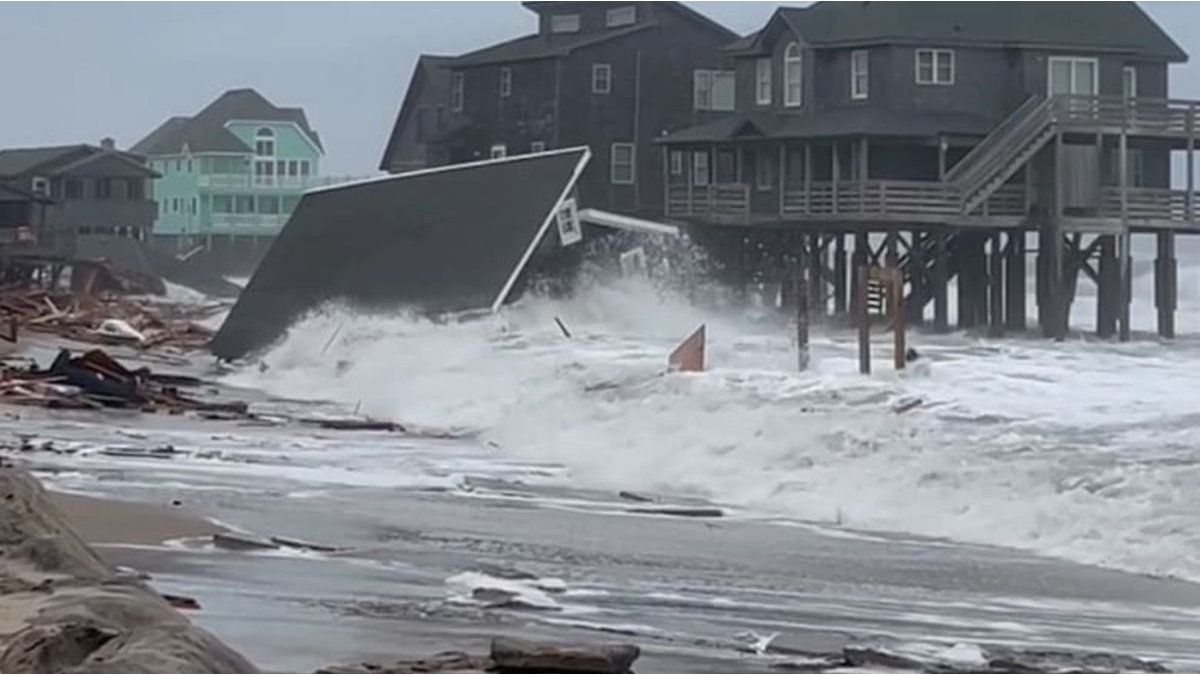The coalition negotiations between the CDU and SPD in Berlin are on the home stretch. Financial questions were still open on Friday, including the division of departments.
The CDU and SPD in Berlin want more speed in housing construction and are planning a “Schnelles-Bauen-Gesetz” for this purpose. This was announced by the CDU state leader and expected new governing mayor Kai Wegner and the SPD leader in Berlin, Franziska Giffey, on Friday on the sidelines of the coalition negotiations between the two parties. These are in the final phase. It is therefore planned to simplify numerous regulations, for example in the state building regulations, and to enable faster approval processes.
“The pace is really being picked up here so that we can really achieve the high number of up to 20,000 apartments,” said Wegner. The goal of an average of 20,000 newly built apartments per year had already been set by the governing red-green-red coalition, but so far it has failed to achieve it. And just on Friday, the statistics office announced that the number of approved apartments in the capital in 2022 fell for the sixth year in a row.
The previous Prime Minister Giffey announced a purchase program for apartments. “We want to increase the stock of state-owned companies to half a million apartments in the future,” she said. “We’re now at almost 400,000.” A capital increase is planned in order to better position the municipal companies for the construction and purchase of apartments. According to the CDU, it is about a sum of billions – initially not specified.
Develop concepts for a “city of the future”.
According to Giffey, the CDU and SPD are also looking at the peripheral development of the former Tempelhofer Feld airport, which has not been changed after a referendum in 2014. “We want to launch an international urban development competition,” she said. The aim is to develop concepts for a “city of the future”.
A finished concept should then be presented to the population for approval. The preparations for this could be launched in this legislature, according to Giffey. Exactly how this is to be done, however, is an open question. A referendum initiated by the Senate has not yet been provided for by law in Berlin.
As a reaction to the successful referendum on the expropriation of large housing companies, the CDU and SPD are planning, according to SPD co-chairman Raed Saleh, a “social framework law”. What should be included in the law, which both sides had already agreed in principle during the soundings, remained open.
According to reports, clear criteria should be defined there, in which cases and in what form socialization can take place – and that more generally and not specifically in relation to apartments. The initiators of the referendum had already criticized the plans for such a law as insufficient and suspect that a rapid expropriation of apartments should be prevented.
In the field of mobility, the CDU and SPD agreed, according to Wegner, to expand local public transport, “particularly in the rail sector”. In addition, the clock frequency should be increased, in the outskirts and in the city center. Wegner promised a mobility policy for all road users, including drivers. “We say yes to safe cycle paths, we say yes to safe bicycle parking spaces (…), but we also say a resounding yes to private transport.”
“Worldview/Religions” as a regular subject
According to Giffey, one of the projects in education policy is the introduction of an elective subject “Weltanschauung/Religions” as a regular subject. The subject of ethics will be retained. The “Tagesspiegel” had previously reported on it.
The coalition negotiations began around three weeks ago. On Friday, the top politicians of the main negotiating group wanted to discuss how the projects in the new government program should be paid for. “Today we are completing the deliberations of the working groups, so we are right on schedule,” said Wegner. The finished coalition agreement will be presented on April 3rd.
Editorial work on the government program is planned for the weekend. The distribution of the departments and “one or the other point” with regard to financing issues would also be clarified at the weekend. It is planned that the CDU and SPD will each take over five Senate administrations. CDU leader Wegner is to become governing mayor after his party’s victory in the repeat election on February 12.
However, there are still two hurdles to be overcome on the way to a black-red Senate: The SPD will start a membership vote on the coalition agreement next week, the result of which will be announced on April 23. The CDU will decide on the government program at a party conference, which is expected to take place after the SPD results have been announced.
Source: Stern
I have been working in the news industry for over 6 years, first as a reporter and now as an editor. I have covered politics extensively, and my work has appeared in major newspapers and online news outlets around the world. In addition to my writing, I also contribute regularly to 24 Hours World.




